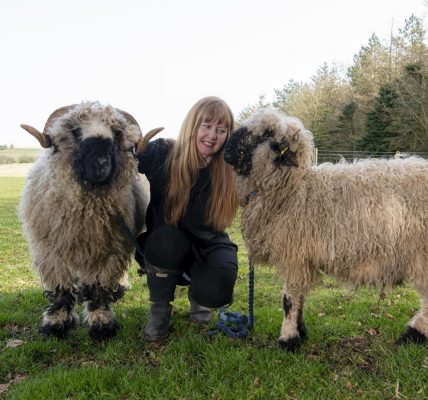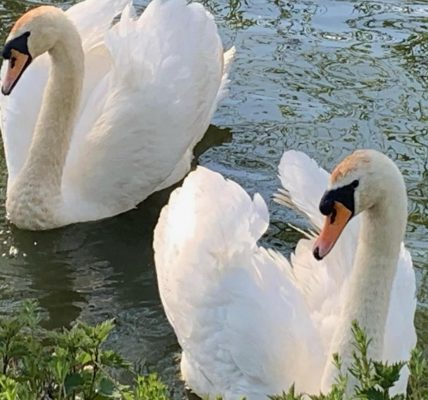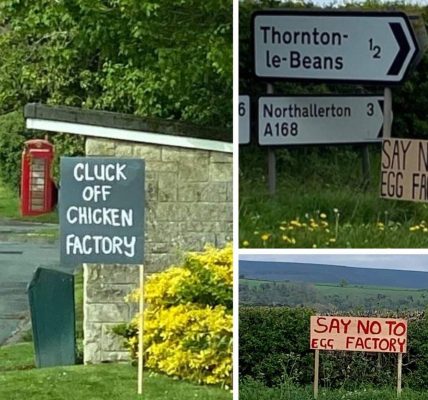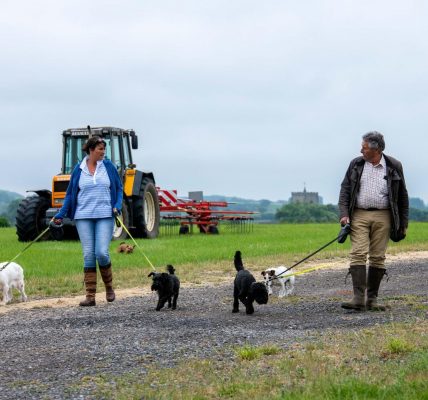Clarkson's Farm: Jeremy Clarkson's crash course in agriculture – and brush with Covid – to feature in new Amazon Prime show
Clarkson's Farm: Jeremy Clarkson's crash course in agriculture – and brush with Covid – to feature in new Amazon Prime show
As Jeremy Clarkson dons his wellies for new Amazon Prime series Clarkson’s Farm, Danielle de Wolfe speaks with the presenter about filming, food chains and farm life.
Relaxed beside a wood burning stove – a scene complete with a baskets of logs and a suitably placed fire poker – Jeremy Clarkson looks every inch the poster child for cottagecore.
Dressed in a khaki waterproof jacket and worn blue jeans, The Grand Tour presenter leans forward as we chat onscreen, propping himself on his elbows as intermittent crackles radiate from the fire.
“If you could see the floor!” exclaims Clarkson, instantly dissolving the romanticised vision of country life before us.
“It’s pouring down so hard – and I mean pouring. There’s an actual lake in here, it’s just so wet today.
“Once again we’re thwarted by the weather, which seems to be the general mantra I think with farming. Whatever you’re planning to do that day, you can’t, because the weather’s poor.”
Talking from the comfort of his Cotswolds farm, surrounded by a thousand sprawling acres of agricultural land and a stone’s throw from his favoured watering hole, Clarkson, 61, looks entirely at ease with rural life.
“I’ve lived out here for 25 years,” says Clarkson, who is originally from Doncaster.
“It’s not like I’m a new boy to the area. I’m sort of happier in the pub round here than I am in… I don’t even know what the celebrity haunts are in London? But I’m sure whatever celebrity haunts there are, I’d be much happier in The Chequers.”
The subject of Amazon Prime Video’s latest docuseries sees the presenter quite literally in the thick of it.
Shot over the course of 12 months, the series follows Clarkson as he attempts to run a working farm – a filming schedule that just so happened to fall slap bang in the middle of a global pandemic.
“I’m not sure Amazon were best pleased when they found out we had just carried on,” remarks Clarkson of filming.
“I’m pretty certain we were the only film crew still operating. Everything shut down as you remember, but we were here. So, well, I just thought, ‘nobody’s told us to stop’.”
Openly admitting to knowing nothing whatsoever about agriculture beyond his tractor-racing days on , Clarkson is joined by seasoned farmers Kaleb and Charlie, who as a trio battle their way through one of the strangest years on record.
“Charlie is a good agronomist – he knows his chemistry and ‘you need to balance this and that’ and he’s very knowledgeable,” Clarkson explains.
Kaleb on the other hand, is affectionately described by Clarkson as “a 22-year-old foetus who has been teaching me things”, a role that regularly required the phrase “ugh, he wasn’t listening” to be uttered after every instruction.
“If anybody’s thinking it’ll be ‘oh, Jeremy will catch fire and his tractor will turn over and everything will blow up,’ it isn’t that,” says Clarkson.
“Nor is it like one of the military documentaries I’ve made, which is all very straight-laced.
“I don’t want to let people think it’s going to be like but with tractors – it’s not, because it’s about farming.”
Amazon has shared the first official trailer for the new series earlier this month which showed Clarkson dealing with horrific weather that sees ‘a month’s worth of rain falling in one day’, and his despair when told a 10-acre crop of rape had failed.
As expected for Clarkson, there are plenty of comedic moments, such as his response to a farmer who told him he’s responsible for global warming, getting kicked by a sheep, and being told to go back to London by a colleague.
He’s also bought a Lamborghini tractor, naturally.
Proof that Covid has affected even the most rural of communities during lockdown, Kaleb describes Clarkson as being “properly scared” about the prospect of catching the virus.
“I was nervous about catching it because when it first happened, it was like ‘if you’re over 60 and you smoked and you’ve had pneumonia, you’re toast’,” explains Clarkson.
“I was like ‘I don’t want to catch this’ – and then I caught it, and I’ve never been as un-ill. I lay in bed watching Bond films, Googling ‘Can I drink beer while I’ve got Covid?’ and there was one Aussie website that said I could, so I carried on drinking.
“Like I say, the farming had to carry on. You can’t just say ‘Oh, well, that’s it, I’m just going to sit at home’ – because everything would have died. You had to carry on.”
A seed that was planted over a decade ago, Clarkson recalls the inspiration for his latest endeavour came long before any plans to film a television show.
“I got the farm in 2008 – and don’t ask me why I bought it, because I have absolutely no idea,” says Clarkson.
“I realised I didn’t know anything about farming and I thought ‘well, how have I got to the age of 60 and I don’t know anything about farming?’
“I don’t really know where my food comes from.’”
A journey of discovery, the project has opened Clarkson’s eyes to the inner workings of the modern-day food chain, alongside posing a number of unexpected questions.
“Now I’m present at the birth of a lamb, it feeds on the grass here, is taken to an abattoir down the road and then it comes back as meat.
“And then it’s somehow more expensive than lamb in the supermarket, which is coming from New Zealand.
“How’s that? How does that happen?”
According to the presenter, it’s a project that has led him to realise “actually, there’s some injustice and some wrongness going on here”.
“And I hope that people watching think the same thing,” continues Clarkson.
“They think ‘actually, I am not going to buy a tracksuit, I’m going to buy a jumper made from British wool. And I’m not going to buy an avocado, I’m going to go out and have a joint of lamb’.
“If one more person sitting in Soho House, having an avocado, lectures me on how environmentally damaging farming is, well, where do you think that avocado came from?
“Oh, Ecuador? Right. That makes sense, flying food in from Ecuador, doesn’t it?”
Calling any attempts to change the eating habits of vegans “a lost cause”, Clarkson notes that: “You can’t really reason with vegans – which is fine, people are allowed to be intransigent if they want.
“I’m just talking about normal people who eat a balanced diet.
“I hope that they think a little bit more about where their food comes from.”










